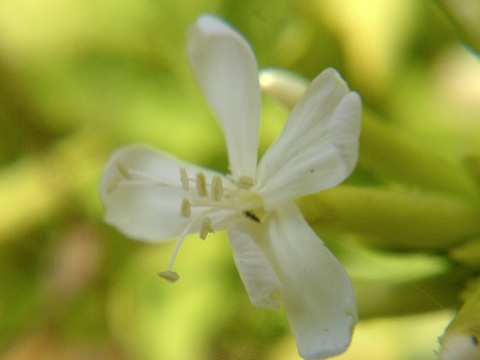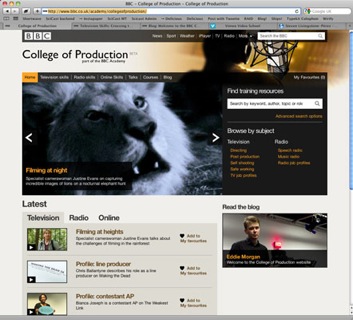Recently in techniques Category
I’ll confess, I never thought of ‘sand collecting’ as being a thing until now. Apparently people do it. Who knew?
However, there’s something rather beautiful about this collection of photographs of sand. We don’t get many geology or earth science films for SciCast, and there’s clearly some interest to be had in exploring the world around you in close-up detail. You may not have a proper macro lens for your camera, but it’s surprising what you can achieve filming through a magnifying glass or a photographer’s loupe. Here’s a picture I took with one of those and a really rubbish old mobile phone camera:

Could be worse, right?
What can you tell us about sand formation, or different types of soil or rock, or plant reproduction, using these sorts of detail shots?
I can’t wrap up this post without one more picture, though: star sand. Who knew this stuff existed? Click through for notes from the photographer.
(sand photos by Flickr user Mouser Williams, published under CC BY-NC-SA.)
The BBC’s College of Production is terrific and all, but it’s a bit… well, it’s a bit straight-laced BBC, isn’t it?
This isn’t. At all:
The whole of Vimeo Video School is a little crazy, but sometimes that’s a good thing, right? Right?
I’ve been watching some of the BBC’s College of Production material, looking for things that might be useful for SciCast film-makers. It’s a bit tricky to ferret out, though, as they’re still struggling a little with what tone and level to pick — their films tend to use quite proper jargon, but cover material that you probably know already if you understand the language they’re using. Odd.
I did like this, however, which illustrates a range of angles that you might take of, say, somebody doing an experiment on a lab bench:
Ignore any bits of the voice-over that don’t make sense, and have a think about how working like this might affect the film you’re making. Chances are you don’t need to get this technical for SciCast, but sometimes knowing what’s possible and how to think can either solve a problem for you, or add that little extra something that lifts your film above the competition.
 Fresh today: BBC College of Production. A hugely ambitious website that’s planning to cover the full spectrum of television programme-making skills and techniques. Which could take years, but there’s already an impressive range of material. Some of it’s way over-the-top for SciCast’s approach to video, but there are some gems in there.
Fresh today: BBC College of Production. A hugely ambitious website that’s planning to cover the full spectrum of television programme-making skills and techniques. Which could take years, but there’s already an impressive range of material. Some of it’s way over-the-top for SciCast’s approach to video, but there are some gems in there.
We’ll be rummaging through and bringing you our picks over the next few weeks, but do let us know if you find something juicy. It’s well worth a look.
 We're not the only ones running a web video competition, of course. One that ran over the summer is CBBC's Me and My Movie. The site (nominated for an interactive BAFTA last night, no less) is very slick, though frustratingly slow to use when you're trying to find something specific. There also aren't very many films, at least that I could find.
We're not the only ones running a web video competition, of course. One that ran over the summer is CBBC's Me and My Movie. The site (nominated for an interactive BAFTA last night, no less) is very slick, though frustratingly slow to use when you're trying to find something specific. There also aren't very many films, at least that I could find.

